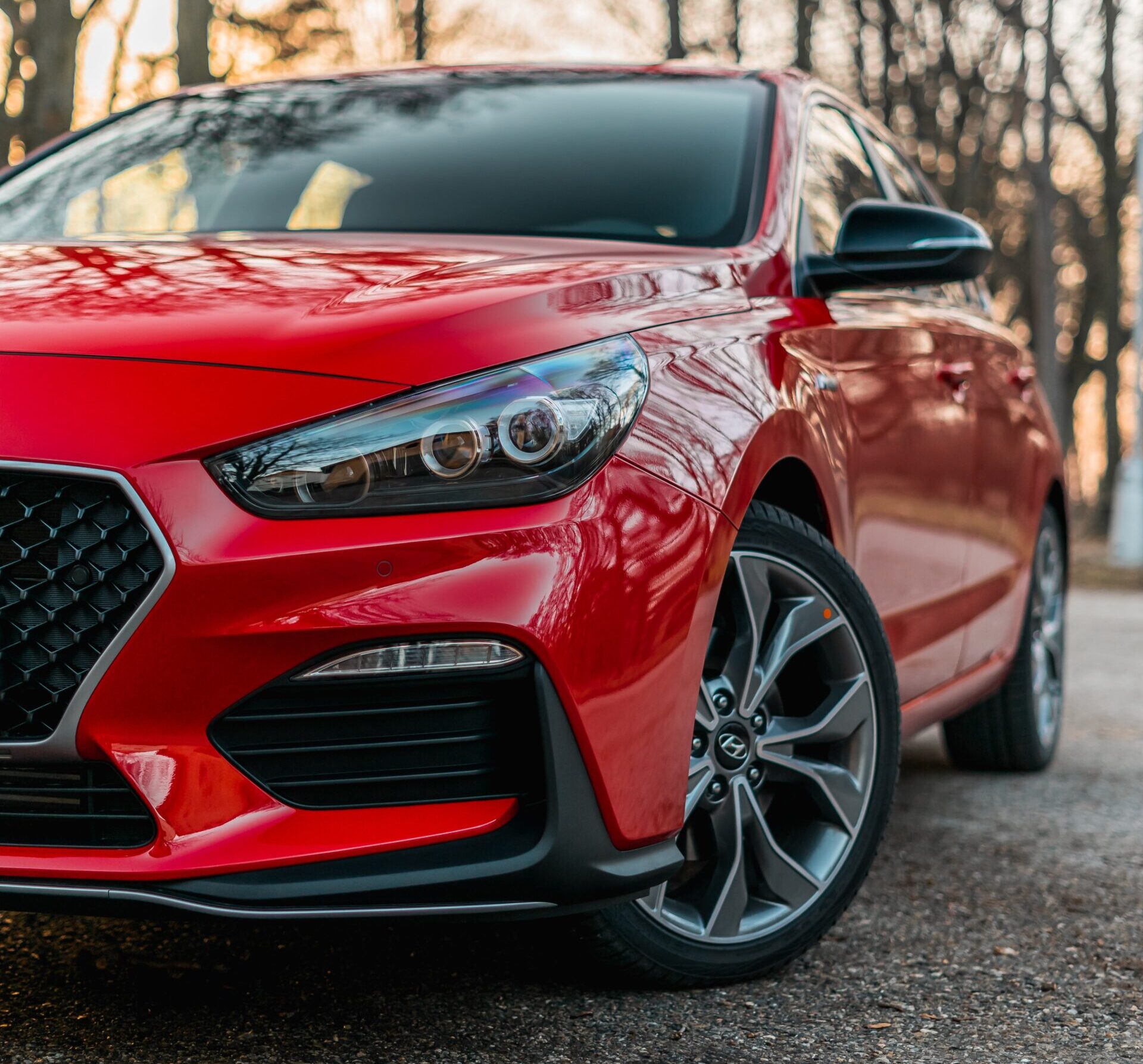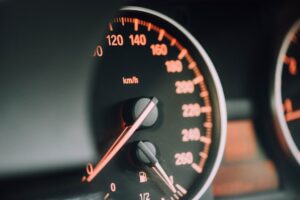Support our educational content for free when you purchase through links on our site. Learn more
Is it Better to Lease or Buy a Car in 2023?
If you're considering getting a new car, one big decision you'll need to make is whether to lease or buy. Both options have their pros and cons, and the right choice for you will depend on your specific needs and circumstances. In this article, we will delve into the key factors to consider when deciding between leasing and buying a car in 2023. Our team of automotive enthusiasts at Car Leases™ will provide you with comprehensive information and expert advice to help you make an informed decision.
Table of Contents
- Introduction
- Leasing vs. Buying: Cost Comparison
- Ownership and Flexibility
- Depreciation
- Maintenance and Repairs
- Mileage Restrictions
- Customization
- Insurance and Registration
- End of Lease/Buying Out the Car
- Environmental Impact
- FAQ
- Quick Tips and Facts
- Useful Links
- Reference Links
Introduction
Buying a car is a long-term commitment that comes with the benefits of ownership, while leasing offers the opportunity to drive a new car every few years with lower monthly payments. In recent years, car leasing has gained popularity due to its affordability and flexibility. However, buying a car can also be a sensible option for those who prefer long-term ownership and the ability to customize their vehicle. Now let's delve deeper into the key factors you should consider when deciding whether to lease or buy a car in 2023.
Leasing vs. Buying: Cost Comparison
One of the most significant factors to consider when choosing between leasing and buying a car is the cost. Leasing typically comes with lower monthly payments compared to buying a new car. This is because you are only paying for the depreciation of the vehicle's value during the lease term, rather than the entire cost of the car.
When you lease a car, you generally don't need to make a large down payment upfront, but you may need to pay an acquisition fee, security deposit, and the first month's payment. On the other hand, when you buy a car, you will typically need to make a larger down payment, finance the remaining balance, and make monthly payments until the car is paid off.
Keep in mind that leasing usually comes with mileage restrictions, and exceeding those limits can result in additional charges. On the other hand, owning a car means no mileage restrictions, allowing you to drive as much as you want without any penalties.
Key point:
- Leasing typically offers lower monthly payments compared to buying a car.
- Leasing often requires less money upfront than buying a car.
- Owning a car means no mileage restrictions.
Ownership and Flexibility
Another crucial factor to consider is ownership and flexibility. When you lease a car, you are essentially renting it for a specific period, typically two to three years. At the end of the lease term, you return the car to the leasing company. This means you don't have long-term ownership of the vehicle, and you need to start the process again if you want to continue driving a new car.
On the other hand, when you buy a car, you have full ownership of the vehicle. You can keep the car for as long as you want, customize it to your liking, and sell it whenever you decide. If you prefer long-term ownership and the ability to modify your vehicle, buying is likely the better option for you.
Key point:
- Leasing provides flexibility to drive a new car every few years.
- Buying a car offers long-term ownership and the ability to customize the vehicle.
Depreciation
Depreciation is a significant factor in the cost of owning a car. As soon as you drive a new car off the lot, it starts to depreciate in value. According to Edmunds, new cars can lose up to 20% of their value in the first year and continue to depreciate over time.
When you lease a car, you only pay for the estimated depreciation during the lease term. This means you don't have to worry about the resale value of the vehicle. However, if you decide to buy a car, you will be responsible for the depreciation, which can affect the car's resale value when you eventually sell it.
Key point:
- Leasing protects you from the potential losses due to depreciation.
- Buying a car means you are responsible for the depreciation when you decide to sell it.
Maintenance and Repairs
Maintenance and repairs are another crucial aspect to consider when deciding between leasing and buying a car. When you lease a car, you are often covered by the manufacturer's warranty for the duration of the lease term. This means that the cost of routine maintenance and many repairs is typically covered by the warranty.
On the other hand, when you own a car, you are responsible for all maintenance and repair costs, especially once the manufacturer's warranty expires. While owning a car gives you more control over where you take your vehicle for service, it also comes with the potential for higher repair bills.
Key point:
- Leasing often includes maintenance and repair coverage under the manufacturer's warranty.
- Owning a car means you are responsible for all maintenance and repair costs.
Mileage Restrictions
When you lease a car, you will typically have mileage restrictions outlined in the lease agreement. Exceeding the allotted mileage can result in additional charges when you return the leased car. The mileage restrictions are in place to protect the vehicle's value, as high mileage can affect the car's condition and resale value.
If you need to travel long distances frequently or have a long commute, leasing may not be the best option for you due to the potential for excess mileage charges. On the other hand, owning a car allows you the freedom to drive as much as you want without worrying about going over a set mileage limit.
Key point:
- Leasing often comes with mileage restrictions that can result in additional charges.
- Owning a car allows for unlimited mileage without any penalties.
Customization
If you enjoy customizing your vehicle, buying a car may be the better choice. When you lease a car, you are generally not allowed to make any modifications to the vehicle. The leasing company wants to ensure that the car retains its value and is returned in its original condition.
On the other hand, owning a car gives you the freedom to customize it as much as you want. Whether you want to install a new sound system, upgrade the wheels, or personalize the interior, owning a car allows you to make it truly your own.
Key point:
- Leasing restricts customization options, while owning a car allows for full customization.
Insurance and Registration
Insurance and registration costs are also important factors to consider when deciding between leasing and buying a car. Insurance premiums for leased cars are often higher than those for owned cars. This is because leasing companies typically require higher levels of coverage to protect their investment.
Additionally, registration fees may also be different for leased and owned cars, depending on your location. Make sure to consult your local DMV or licensing agency to understand the specific fees associated with leasing and buying a car in your area.
Key point:
- Leased cars often require higher insurance premiums.
- Registration fees may vary for leased and owned cars.
End of Lease/Buying Out the Car
At the end of a lease term, you have a few options. You can return the car and lease a new one, purchase the car outright if the leasing agreement allows for it, or simply walk away from the lease. If you decide to buy the car at the end of the lease term, you will typically need to pay the residual value, which is the predetermined value of the car at the end of the lease.
Buying out the car can be a good option if you have grown attached to the vehicle or believe it holds its value well. However, make sure to compare the buyout price with the market value of similar cars to ensure you are getting a fair deal.
Key point:
- At the end of a lease, you can return the car, buy it outright, or lease a new one.
- Buying out the car can be a good option depending on the buyout price and the car's market value.
Environmental Impact
Environmental considerations are increasingly important for many car buyers. If you are concerned about your carbon footprint, it's worth noting that leasing a new car every few years may have a higher environmental impact compared to buying a fuel-efficient car and keeping it for a longer period. This is because the production and transportation of new vehicles contribute to carbon emissions.
However, if you are planning to lease an electric vehicle (EV) or a plug-in hybrid, leasing can be a sustainable option. Leasing allows you to enjoy the benefits of driving an eco-friendly car without the long-term commitment.
Key point:
- Leasing new cars frequently may have a higher carbon footprint compared to owning a fuel-efficient vehicle for a longer period.
- Leasing an electric vehicle or plug-in hybrid can be a sustainable choice.
FAQ
Is it financially smarter to buy or lease a car?
The financial advantages of leasing or buying a car depend on your unique circumstances and priorities. Leasing typically offers lower monthly payments and the ability to drive a new car every few years, while buying gives you long-term ownership and the ability to customize your vehicle. Consider factors such as your budget, desired level of flexibility, and maintenance costs to make an informed decision.
Is now a good time to lease a car in 2023?
The best time to lease a car is often when there are attractive lease deals and incentives available. It's worth keeping an eye on manufacturers' websites, local dealerships, and online marketplaces for lease promotions. Additionally, taking advantage of end-of-year or holiday deals can also result in more favorable lease terms. Do thorough research and compare lease offers to ensure you are getting the best deal possible.
Why are car leases so expensive now in 2023?
Car leases may be more expensive in 2023 due to various factors such as increased demand, supply chain disruptions, and the ongoing semiconductor chip shortage. These factors have led to higher vehicle prices and reduced inventory, which can impact lease prices. However, it's essential to shop around and negotiate lease terms to potentially find more affordable options.
Why is leasing a car smart?
Leasing a car can be a smart choice for certain individuals and situations. Some benefits of leasing include lower monthly payments compared to buying, the ability to drive a new car every few years, and reduced repair and maintenance costs under the manufacturer's warranty. Leasing can also provide flexibility for those who enjoy having the latest technology and features in their vehicles.
Quick Tips and Facts
- Tip: Before deciding whether to lease or buy a car, assess your lifestyle, budget, and preferences to determine which option aligns best with your needs.
- Fact: According to Experian, leasing accounted for approximately 29% of all new vehicle financing in the third quarter of 2021.
- Fact: The most common lease term is 36 months (3 years), but you can often find lease terms ranging from 24 to 48 months.
- Tip: Consider consulting with a trusted financial advisor or researching online calculators to help you compare the costs of leasing versus buying based on your specific financial situation.
- Fact: The decision to lease or buy a car ultimately boils down to your priorities and individual circumstances. There is no one-size-fits-all answer, so take the time to evaluate your needs and preferences.





